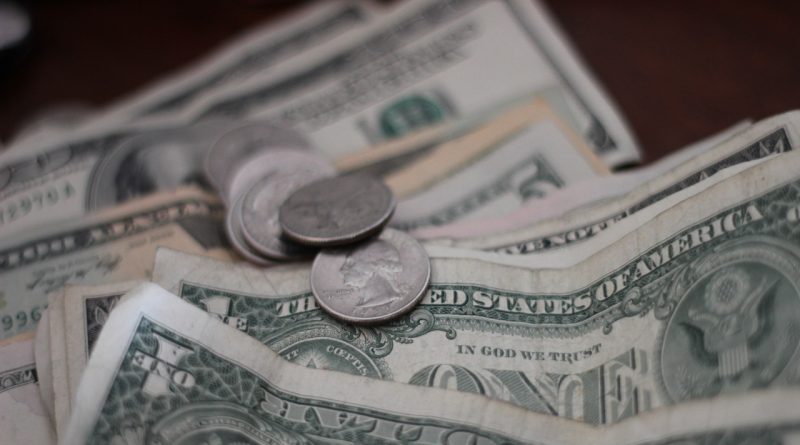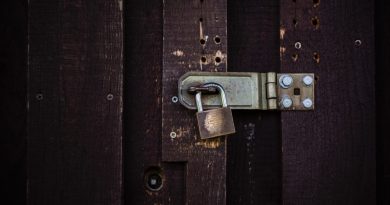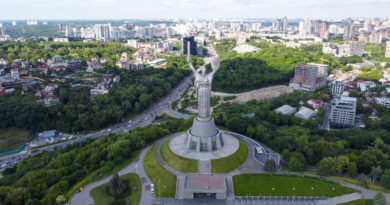Money CAN Buy Happiness
We’ve been told since forever that “Money can’t buy happiness”. It can!
I worked hard for a while researching and analyzing happiness for a project I was working on. Right after, I faced some financial problems. In this context, with my mind still deeply involved with the subject of happiness, I put the two: happiness and money, side by side. We’ve been told since forever that “Money can’t buy happiness”. Now, I believe that it can.
Yes, there are people who manage to be happy while suffering and starving. I know a few such exceptions, personally.
As a child, I had a blind classmate. I came from an affluent family, I didn’t know him or his folks. As luck would have it, on one occasion I was asked to pick him up on my way to school. In my eagerness to do so I arrived early. The whole family was having breakfast. I was invited. Among those sited at the table was his father, mother and two siblings. There was one slice of stale bread, a meager bit of marmalade and a cup of hot water pre-portioned for each person. The house was falling apart around us. The whole family was wearing heavily mended hand me downs. Yet I’ve never seen more love before in my life. Their love toward each other is what I remember best, many decades after. I know in my heart that even though they had to make tough choices, they were happy.
I live in Los Angeles, the Entertainment Capital of the World. Sounds great, doesn’t it? We boast a huge number of stars, millionaires and the most billionaires of any State (163!) among our residents. But not all is glitz and glamour.
Nearly 15% of Californians (that’s almost 6 million people!) are poor. (I have a weird feeling that the numbers don’t reflect reality; the poverty rate is likely higher.) The number of homeless residents of L.A. is currently nearing 60,000.
The homeless are everywhere. In every neighborhood, including Beverly Hills. Some of the homeless are bums, true. (I’m guessing, a few.) Many are mentally ill: my life was threatened twice by such individuals last week, alone. There are those who camp on the streets accompanied by a pet dog or cat. There homeless veterans. The majority however are families down on their luck. You see plenty of mothers with small kids.
I’m being haunted by the memory of an elderly couple. Both in their 80s. He was sitting on a bus bench watching over a shopping cart that held their belongings. His wife was sweeping the sidewalk around him. He pointed out: “you missed a spot”. They clung to each other and their daily routine as if it could protect them from their harsh reality. This memory breaks my heart. These weren’t bums or crazy people. (I can think of only one explanation for people their age forced to live on the streets, with all their normal habits intact…..) Still, they seemed happy and oblivious to their circumstances.
By and large however a normal, average human being can’t be happy without money. In the world of today, money represents survival, peace of mind and reputation.
Let’s be honest, very few of us could build a shelter and hunt for (or grow) food ourselves. (That’s not to mention that doing so, would very likely be against the law!) Consequently, plenty of our peace of mind comes from knowing that the bills are paid. Outside of competitive sports, respectable reputation can’t be built by a skillful use of brute force anymore, either. Our reputations — to a large degree — are measured by our bank account balances, investment portfolios and credit scores.
In my work on happiness, I concluded that happiness is: created, earned and “undeserved”. All three types of happiness are needed to be truly happy. I’m talking about the kind of happiness that meets all the needs and expectations of happiness we ALL have. A comprehensive, complete happiness that can survive any storm while giving us a sense of personal power.
Can anyone create, earn or enjoy the “undeserved” happiness without money? Nope. Anyone whose immediate safety is at risk has to worry about shelter, where the next meal will come from and most importantly, how to earn money, ASAP. With so many pressing worries, thoughts of happiness wouldn’t even register on their radar.
“You must gain control over your money or the lack of it will forever control you.” Dave Ramsey
As for earned happiness, the prerequisite to aspiring, expanding, having and sustaining relationships is some level of financial stability. Being in dire financial straits affects us personally in terms of mood, attitude and self-confidence. Financial problems are also a source of shame and since shame has to be kept secret, it limits our ability and willingness to engage with others. Financial needs occupy a lot of time and attention which isn’t available for other things. Money shortage severely limits our reach and our ability to participate socially. If financial problems persist, those who have them find themselves increasingly more and more isolated and alone.
What is the “undeserved” happiness? In short, ROI: dividends on investments made in all life’s categories. However, a person suffering financial hardship isn’t in a position or mood to invest, so even the “undeserved” happiness is quite unlikely to smile at them.
Long story short, happiness isn’t for the destitute. They can’t afford it. The low-income group (roughly 40 million Americans) that barely covers their essential needs can’t afford happiness, either. (To a person dealing with unmet needs, exploitative workplace, two jobs and disappointed family daily, happiness is yet another luxury they can’t afford.)
What money CAN buy? Everything!
Money can buy safety and comfort. With some safety and comfort, you have personal independence and power: you can afford to belong to yourself and make your own decisions. Knowing that you’re secure affects how you feel about yourself and others and defines your view of the world.
Since you don’t have to worry about necessities of life, you can afford time for yourself, time to think, time to plan, time to play, time to dream and time to implement and pursue; time to develop (new) and nurture (existing) relationships.
It takes money to make progress, to expand, to advance and to…. live.
“Money is a terrible master but an excellent servant.” P.T. Barnum
Participation in any social gathering (business or private) has a cost of admission.
Vacation — and I don’t mean a “staycation” or a long weekend — can be planned, taken and enjoyed, provided you can pay for it.
Money can assuage many fears: take the fear of the dentist, most people fear the dentist’s bill more than the dental drill. Knowing you have a solid income and some safety pillow behind you makes you more resilient to stress and life’s surprises.
Money affords us the opportunity to express our goodness, generosity and charity: you can give of your time and money, if you have enough to share.
Yes, I know you waited for it: “Money can’t buy love”, right? Wrong, it can. Go to any animal shelter, adopt a pet at risk of being euthanized and you’ll know what true love is… (It may not be the answer you were hoping for. The one you were looking for is in the points I made above. People who are financially stable, secure in themselves, who talk the talk and walk the walk, who are good, socially active and generous with others don’t have to buy love; for them love is another free perk.)
“Money is only a tool. It will take you wherever you wish, but it will not replace you as the driver.” Ayn Rand
So yes, money matters. A lot. Perhaps the saying “Money can’t buy happiness” was true in a different time and place. Perhaps it was meant as words of consolation for the financially stricken (“You don’t have money, but you can be happy.” Yeah, right.). Perhaps it was intended to build congregations of the “meek”. Perhaps it was aiming to encourage support for a political movement. None of it holds true, today. Today, money CAN buy happiness.




